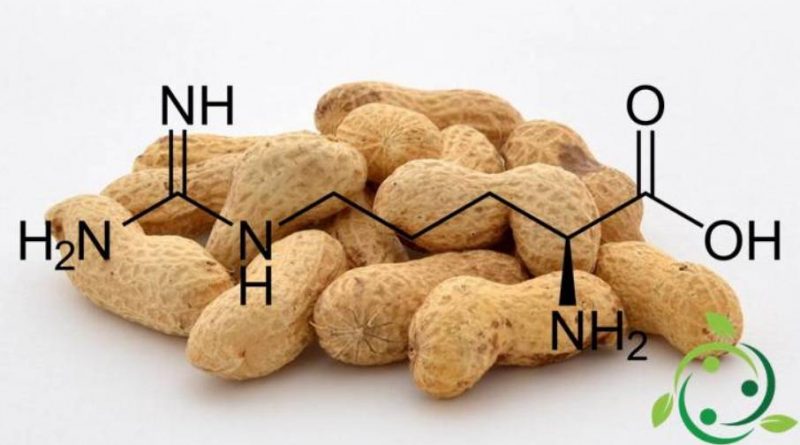Arginine
Arginine
Arginine is a basic polar amino acid whose term in the IUPAC nomenclature is: 2 (S) -amino-5-guanidylpentanoic acid and whose brute or molecular formula is: C6H14N4O2.
The basicity of this amino acid is linked to the guanidinic group present in the side chain, which is strongly basic. Arginine is a chiral molecule; enantiomer L is one of the 20 ordinary amino acids.
The term arginine derives from the Latin argentum, due to the fact that it was isolated the first time by precipitating its silver salt. It was first obtained in 1886 by a lupine shoot extract thanks to the Swiss chemist Ernst Schultze.
Arginine is an amino acid synthesized in nature and present in different quantities in plants.
Arginine has different concentrations, reported in mg / 100g of product, is present in the following concentrations: Toasted peanuts, 3736; Hazelnuts, 2824; Dried beans, chickpeas, dried lentils, soybeans, 2000-2200; Almonds, 1587; Cereals and derivatives (pasta, bread, rice, etc.), 400-500.
For this reason a good diet allows the intake of a sufficient dose of this amino acid for the main metabolic functions. For this reason Arginine is an essential amino acid especially for growing children, but not for adults (since it can be synthesized by the body, especially at the renal and hepatic level).
But taken in quantities between 3.5 and 5 grams a day, especially through meat, dried fruit and vegetable foods rich in proteins (legumes), Arginine could become essential even in adults subjected to particularly restrictive diets, to stress important psychophysics or physical traumas.
By virtue of its biological role and excellent tolerability, L-Arginine has, for many years now, become a supplement particularly used in both clinical and sports.
L-Arginine is an amino acid classified as conditionally essential, as it plays an important role in some physiological moments of life, such as adolescence and puberty, and in the course of certain pathological conditions such as extensive trauma and burns.
Among the most important biological functions of the Arginina we remember:
– synthesis of glucose in particular metabolic conditions (gluconeogenesis);
– protein synthesis;
– synthesis of Creatine and other amino acid derivatives, fundamental in the cellular economy;
– detoxification of nitrogenous residues;
– synthesis of nitric oxide, fundamental element endowed with vasodilator power;
– immunostimulatory action;
– antioxidant action,
For this reason, the integration of the ordinary diet with L-Arginine has become fundamental for some cardiological diseases, hypertension, dysmetabolism, surgical trauma, severe burns and male fertility disorders.
Warning: The information reported is not medical advice and may not be accurate. The contents are for illustrative purposes only and do not replace medical advice.

